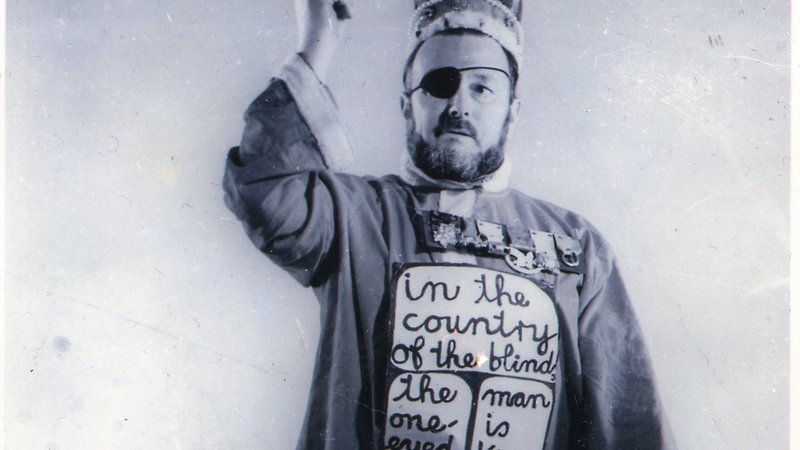Tessa Mitchell seeks to fully understand her infamous grandfather, printmaker and publisher Bob Lowry. Using the unconventional medium of performance documentary, she uncovers the story of a troubled but truly revolutionary New Zealander.

Here Lowry lived / A stone volcanic god / Fed with honey and red gourds / Opening his heart like a great door / To poets, lovers, and the houseless poor.
Screened as part of 2024
I Am a Dark River 2024
Dubbed “the kumara god” by James K. Baxter, Bob Lowry was, somewhat famously, a lot of things. Printmaker, writer, activist, intellectual, publisher, socialist, raconteur – but to Tessa Mitchell, he is the mysterious grandfather she grew up hearing so much about but never knew. He died before she was born, but she has felt an intense connection with him her entire life. Does the dark river that ran through him also run through her? Mitchell, herself as unconventional and creative as her grandfather, uses the medium of performance documentary to explore this question, and in doing so reveals the fascinating history of her family – her grandfather’s activism and notoriety, his mental health struggles, and the subversive, bohemian house parties her grandparents threw during a deeply repressive and restrictive time in New Zealand’s history.
Among the first to print or publish renowned New Zealand authors such as Allen Curnow and Frank Sargeson, Lowry was legendary in the world of publishing in the 1940s and ’50s. But in creating this documentary, his granddaughter craves something deeper. She brings Lowry’s spirit back to life through emotionally charged readings of Lowry’s writing and poetry about him by famous authors, music, movement, as well as interviews with her family and people who knew him personally. She uncovers a fascinating but deeply flawed figure; Lowry’s professional and social success was marred by depression and alcoholism, which ultimately led to his undoing.
Much more than a personal tribute to a family member, I Am a Dark River provides a fascinating insight into the all but lost art of printmaking, and paints a picture of a long-lost Aotearoa during a difficult and turbulent time forgotten by so many, but that still echoes in our present day. — Louise Adams